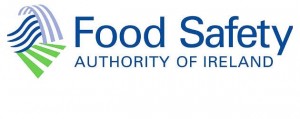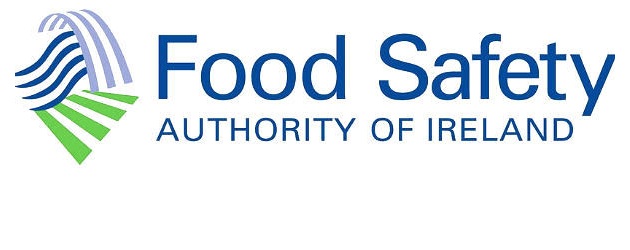The Food Standards Agency is investigating urgently how a number of beef products on sale in the UK and Republic of Ireland came to contain some traces of horse and pig DNA.
 |
| [relatedPosts title=”Related Posts”] |
On Tuesday, 15 January the Food Safety Authority of Ireland (FSAI) published the findings of a targeted study examining the authenticity of a number of beef burger, beef meal and salami products available from retail outlets in Ireland. The study which tested for the presence of horse and pig DNA, reveals the presence of horse DNA in some beef burger products. The FSAI states this raises concerns in relation to the traceability of meat ingredients and products entering the food chain.
A total of 27 beef burger products were analysed with 10 of the 27 products (37%) testing positive for horse DNA and 23 (85%) testing positive for pig DNA. In addition, 31 beef meal products (cottage pie, beef curry pie, lasagne, etc) were analysed of which 21 were positive for pig DNA and all were negative for horse DNA. All 19 salami products analysed tested negative for horse DNA. Traces of horse DNA were also detected in batches of raw ingredients, including some imported from The Netherlands and Spain.
The beef burger products which tested positive for horse DNA were produced by two processing plants (Liffey Meats and Silvercrest Foods) in Ireland and one plant (Dalepak Hambleton) in the UK. They were on sale in Tesco, Dunnes Stores, Lidl, Aldi and Iceland. In nine of the ten beef burger samples from these retailers, horse DNA was found at very low levels. However, in one sample from Tesco, the level of horse DNA indicated that horsemeat accounted for approximately 29% relative to the beef content. The FSAI is working with the Department of Agriculture, Food and the Marine, and the processing plants and retailers involved. The retailers have stated that they are removing all implicated batches from sale today. In addition, Silvercrest Foods has informed the FSAI that it is withdrawing all products from sale and replacing them with new products.
According to Prof. Alan Reilly, Chief Executive, FSAI, whilst these findings pose no risk to public health they do raise some concerns. He states: “The products we have identified as containing horse DNA and/or pig DNA do not pose any food safety risk and consumers should not be worried. Consumers who have purchased any of the implicated products can return them to their retailer.”
“Whilst, there is a plausible explanation for the presence of pig DNA in these products due to the fact that meat from different animals is processed in the same meat plants, there is no clear explanation at this time for the presence of horse DNA in products emanating from meat plants that do not use horsemeat in their production process. In Ireland, it is not in our culture to eat horsemeat and therefore, we do not expect to find it in a burger. Likewise, for some religious groups or people who abstain from eating pig meat, the presence of traces of pig DNA is unacceptable. We are working with the meat processing plants and the Department of Agriculture, Fisheries and the Marine to find out how horse DNA could have found its way into these products,” concludes Prof. Reilly.
The FSAI and its official agencies carry out a number of surveys and studies each year as part of its proactive monitoring activities. These product surveys provide a snapshot of the status of products on the market at specific time. The legal responsibility for placing safe food on the market lies with the food industry and the FSAI routinely monitors and samples for compliance.
FSA Investigation
The Food Standards Agency has met with representatives from the food industry (producers, processors and retailers) from all parts of the UK to explore how horse and pig DNA could have found its way into beef products. Industry representatives confirmed the existing processes that they follow to ensure that the products that reach consumers are of the highest standards. These include quality controls in place at all stages of the food chain. They also set out the actions that they have already taken in response to this incident.
It was noted that there are two distinct types of case:
- In all but one of the cases, the levels of horse and pig DNA were extremely low.
- In the one exceptional case, the level of horse meat accounted for 29% of the meat content.
The causes of these two problems are therefore likely to be different and the focus of the investigations into the causes will be different.
The FSA has now set out a four-point plan for its investigation, which it will be implementing in conjunction with other Government departments, local authorities and the food industry:
- To continue the urgent review of the traceability of the food products identified in FSAI’s survey. The retailers and the UK processor named in the survey have been asked to provide comprehensive information on the findings by the end of Friday 18 January.
- To explore further, in conjunction with the Food Safety Authority of Ireland, the methodology used for the survey to understand more clearly the factors that may have led to the low level cases of cross-contamination.
- To consider, with relevant local authorities and the Food Safety Authority of Ireland, whether any legal action is appropriate following the investigation.
- To work with the Department for Environment, Food and Rural Affairs (Defra), the devolved rural affairs departments and local authorities on a UK-wide study of food authenticity in processed meat products.
FSA Update
The retailers and UK processor that were named in the investigation by the Food Safety Authority of Ireland (FSAI) into horse and pig DNA in beef products have provided additional information to the Food Standards Agency.
This has included detailed information on the suppliers of the products involved, which is allowing further investigations to take place. The authorities in Ireland and in the UK are working closely together; Tesco is carrying out a complementary investigation.
The FSA is stressing that, on the basis of the evidence, there is no food safety risk to consumers from these products. There is nothing about horse meat that makes it any less safe than other meat products. The meat products were supplied to the retailers by approved establishments. The burgers that contained horse DNA were tested by FSAI for the presence of phenylbutazone, a commonly used medicine in horses that is not allowed in the food chain; all of the results were negative.
The retailers named by FSAI have confirmed that they have removed all relevant products from their shelves. Other major retailers have decided to remove products from sale from the suppliers named in the investigation. The FSA recognises that this is an appropriate action for retailers to take to maintain consumer confidence.
The Department for Agriculture, Food and the Marine in Ireland stated yesterday evening that further samples of products from the Silvercrest processing plant had been tested. Seven samples of raw ingredients were tested, one of which, sourced from another European Union Member State, tested positive for the presence of horse DNA. The Silvercrest plant has temporarily suspended all production. The FSA’s investigation into the Dalepak plant in Yorkshire is focusing particularly on Dalepak’s suppliers and whether it has suppliers in common with Silvercrest.
The FSA has initiated a sampling programme to investigate the authenticity, that is, the content compared with the label’s listed ingredients, of a range of meat products. We are working with a number of local authorities to take samples for analysis in Official Control laboratories. Samples have been taken from the Dalepak plant by North Yorkshire Trading Standards. These have been sent for testing to assess both the presence and level of any horse or pig DNA.
Further Information
Table of Results of Beef Burgers Study
Questions and Answers on Horse and Pork DNA found in Meat Products





